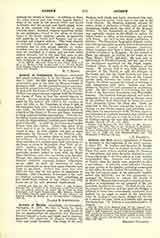

Andrew of Lonjumeau, Dominican missionary and papal ambassador, b. in the Diocese of Paris; died c. 1253. He first appears in the company of missionaries sent to the East by Blessed Jordan of Saxony in 1228. On this journey he gained great proficiency in several Oriental languages. When Baldwin II gave over the Crown of Thorns to King Louis IX, Andrew was commissioned, together with the Dominican James of Paris, to bear the sacred treasure to France. But on reaching Constantinople, they were asked by the barons, who ruled in the vacancy, to carry the relic to the Venetians, to whom it had, in the meantime, been sold. Both set out about Christmas, 1238. At Venice Andrew remained behind in custody of the Crown of Thorns and James hastened to King Louis for further instructions. Were the latter willing to guarantee two hundred thousand pounds of gold, the impoverished Venetians were ready to dispose of the relic. In 1239 the two Friars had reached Troyes with the Crown. From that place King Louis carried it on his shoulders to the newly built chapel at Aix. In 1245 Andrew was sent as papal ambassador by Innocent IV to the Oriental schismatic patriarchs, to induce them to unite with the See of Rome. Contrary to all expectation he found them orthodox as is evident from their joint letter to the Pope, as given in Raynaldus (Ann. Eccl., ad an. 1247). Andrew was probably the bearer of this letter to the’ Holy Father. On his journey to the patriarchs Andrew halted to treat with the Mogul Khan Baiothnoi, and, after his death, with Ercoltai. Though this diplomatic mission utterly failed, as Bernard Guidonis expressly declares (Chronicon, ad an. 1248) we have the testimony of subsequent missionaries to show that many converts were made to the Faith. Andrew died some time after 1253, for that year he was active as missionary in Palestine. The Franciscan, Rubruquis, in his work on Oriental customs, declares that everything he had heard from Andrew on the subject, was fully borne out by his own personal observations.
THOMAS M. SCHWERTNER

